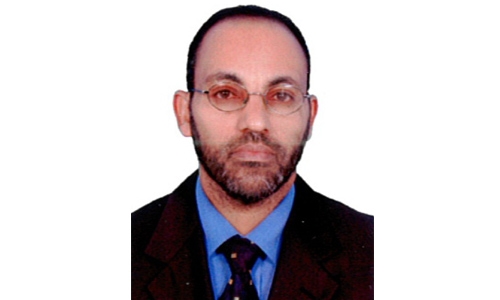Is another disaster in the making?
During the last six years, around half a million Syrians have lost their lives; hundreds of thousands wounded and more than five million fled their country making it one of the century’s notable human disasters our generation has ever witnessed.
Surprisingly, in another part of the world, a bigger more devastating situation than Syria’s conflict is in the making, but has received little world attention and limited action.
Around 20 million people are on the brink of famine in four conflict stricken countries, namely Nigeria, South Sudan, Somalia and Yemen, according to recent UN refugee report. These people can perish, if the international community didn’t act on time. It is to be remembered that in 2011, about 260, 000 people have died of famine in the Horn of Africa alone, according to UN sources.
Due to drought and conflict, those countries are believed to be risking starvation in the coming few months, say experts in the field.
Climate change including desertification and unpredictable rain patterns, among other factors, have destabilized the stable farming communities. These nature- induced disasters could be prevented with the support of the international community but the precarious security situation in the countries would not allow that to happen.
The persistent instability due to infightings and terrorism in those countries have aggravated the humanitarian disaster and reached a point where international support becomes next to impossible to provide aid to the needy, leaving the vulnerable section of society namely women and children to starve.
A close look into the countries shows that some of the countries including Nigeria and South Sudan are rich in natural resources including petrol and at least were expected to be self-sufficient. Contrary, they have become dependents on international aid.
Though terrorism and infighting have contributed to the current situations in the countries, poor governance, corruption, lack of accountability and responsibility of politicians and leaders have complicated matters. In fact, the people have been betrayed by their very leaders rather than the international community.
As a result of the conflicts, people are fleeing their birth places to unknown destinations in neighbouring countries where UN finds it difficult to provide them with the necessary humanitarian supports.
The other two countries, Somalia and Yemen are strategically located in the world’s important choke point of the Bab Al Mandab, where most of the world’s commodities pass through so they could gain from maritime transactions and trade.
Somalia, which has been without a central government for decades, has Al Shebab terrorist threat, playing havoc in the country’s attempt to political stability.
The situation in Yemen is different from the African scenario. The country has become a playground of geopolitical game which has devastated its precarious economy and inflamed tribal conflicts. Added to this cocktail is the alleged Iranian intervention which has sown sedition and sectarianism in the once stable and tolerant Yemeni society.
The Iranian intervention has seriously crippled the country politically, socially and economically. It has allegedly blocked peaceful political settlement by persuading the Houthi rebels it supports into boycotting international conferences aimed at solving the conflict. Through its irresponsible role of supporting the Houthi rebels and opposing the legitimate government, it has triggered hitherto unknown social and economic breakdown of the Arab world’s poorest nation.
Experts say that unlike the African case, Yemen’s starvation can be averted not only by the provision of international aid, but also stopping Iran’s intervention and reviving the legitimate government of Yemen. This is the main task of the Saudi led coalition forces where Bahrain is an active participant whose mission is to achieve stability in Yemen.
Starvation and terrorism threats can be dealt with by the combined efforts of international support but the endemic corruption of the respective governments remains a stumbling block to avert perceived humanitarian disaster.
Related Posts

